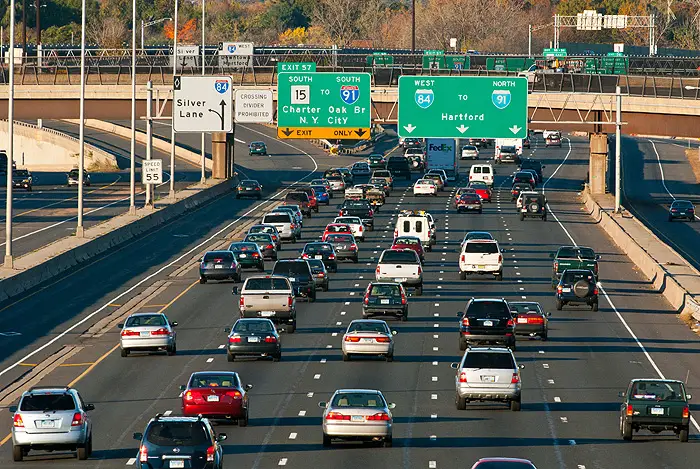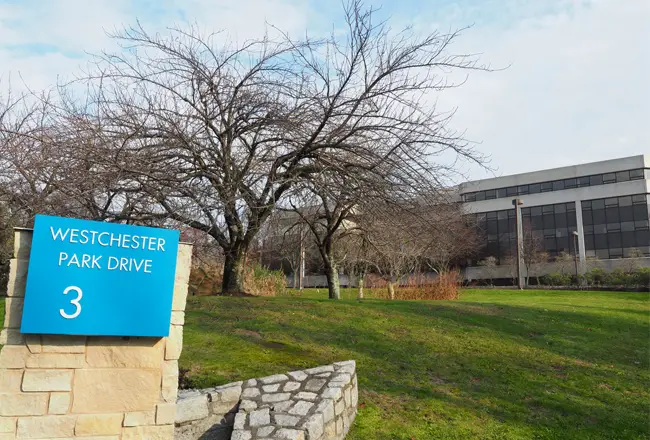Debate over the various transportation infrastructure proposals continues to heat up, with the Connecticut state treasurer saying the plan by Republican Senate members would be too risky, Gov. Ned Lamont saying he”™s leaning toward the proposition by House Democrats and Senate Republican Leader Len Fasano blasting Lamont for those remarks.
 State Treasurer Shawn T. Wooden wrote a letter to Lamont protesting the Republicans”™ FASTR CT plan, saying it could increase borrowing costs and leave Connecticut in a weaker position should a recession occur ”“ objections that have been voiced by other Democrats.
State Treasurer Shawn T. Wooden wrote a letter to Lamont protesting the Republicans”™ FASTR CT plan, saying it could increase borrowing costs and leave Connecticut in a weaker position should a recession occur ”“ objections that have been voiced by other Democrats.
FASTR CT would remove $1.5 billion of the state”™s projected $2.9 billion budget reserve fund, or “rainy day fund,” to pay down pension liabilities, producing an annual savings of $130 million that would then be spent on transportation infrastructure.
As opposed to Lamont’s own CT2030 plan, as well as the House Democrats’ proposal, state Republicans have remained adamantly opposed to any strategy that involves tolling.
“After years of difficult budgets and fiscal crisis, the state is on a better course,” Wooden wrote. “The Budget Reserve Fund has reached historic levels because of fiscal discipline and smart policy.”
“Paying down long-term liabilities ”” including unfunded pension systems ”” is generally a fiscally prudent step,” the letter stated. “However, to do so at the expense of reducing short-term flexibility to meet today”™s current cash obligations, especially in the event of a possible future recession, creates serious liquidity, market and credit risks for the state.”
Yesterday the Connecticut Office of Fiscal Analysis released its Fiscal Accountability Report, which also warned against taking money out of the rainy day fund. That report estimates that $3 billion will be needed in the reserve fund to offset the revenue loss associated with a recession.
The governor told reporters earlier this week that he was “leaning” toward accepting the proposal by fellow Democrats, House Speaker Joe Aresimowicz and House Majority Leader Matt Ritter, that would install trucks-only tolls on 12 highways.
That plan would raise an estimated $150 million per year ”“ less than Lamont”™s CT2030, which sought 14 highway tolls for all vehicles, and FASTR CT. The plan would also fail to raise enough revenue to qualify for low-interest federal loans, as opposed to the other two plans.
Fasano denounced Lamont”™s comments, saying: “I cannot fathom how the governor can say he is leaning toward supporting a plan that does not even exist, based on an idea he has already rejected.”
The Republican leader dismissed the House Democrats”™ proposal as “a press release, not a plan,” and decried its lack of precise details. “The House Democrats”™ idea is nothing more than a lawsuit waiting to happen,” he said.
“If the governor is serious about leaning toward a truck-toll proposal without any details, then I can only assume he is not serious about fixing transportation,” Fasano said. “He is only serious about installing tolls and any path that leads him to that end result.”
Fasano also questioned Wooden”™s motives in speaking against FASTR CT, maintaining that the treasurer was dismissing the Republicans”™ plan without fully vetting it and meeting with GOP leaders.
Lamont repeated his concerns that FASTR CT”™s removing such a large sum from the reserve fund “is financially very risky,” but called both it and the House Democrats”™ plans “credible.”
Another plan by Republican members of the House has yet to be revealed.
The governor expressed confidence that common ground could be found among the various proposals, although Fasano sounded less conciliatory.
“The governor”™s efforts to get leaders together are moving at a snail”™s pace,” he said. “If legislative leaders are not willing to make their schedules flexible, there is no chance we will be voting on any transportation plan before the next legislative session. Every day we delay means further damage to our state.”






















